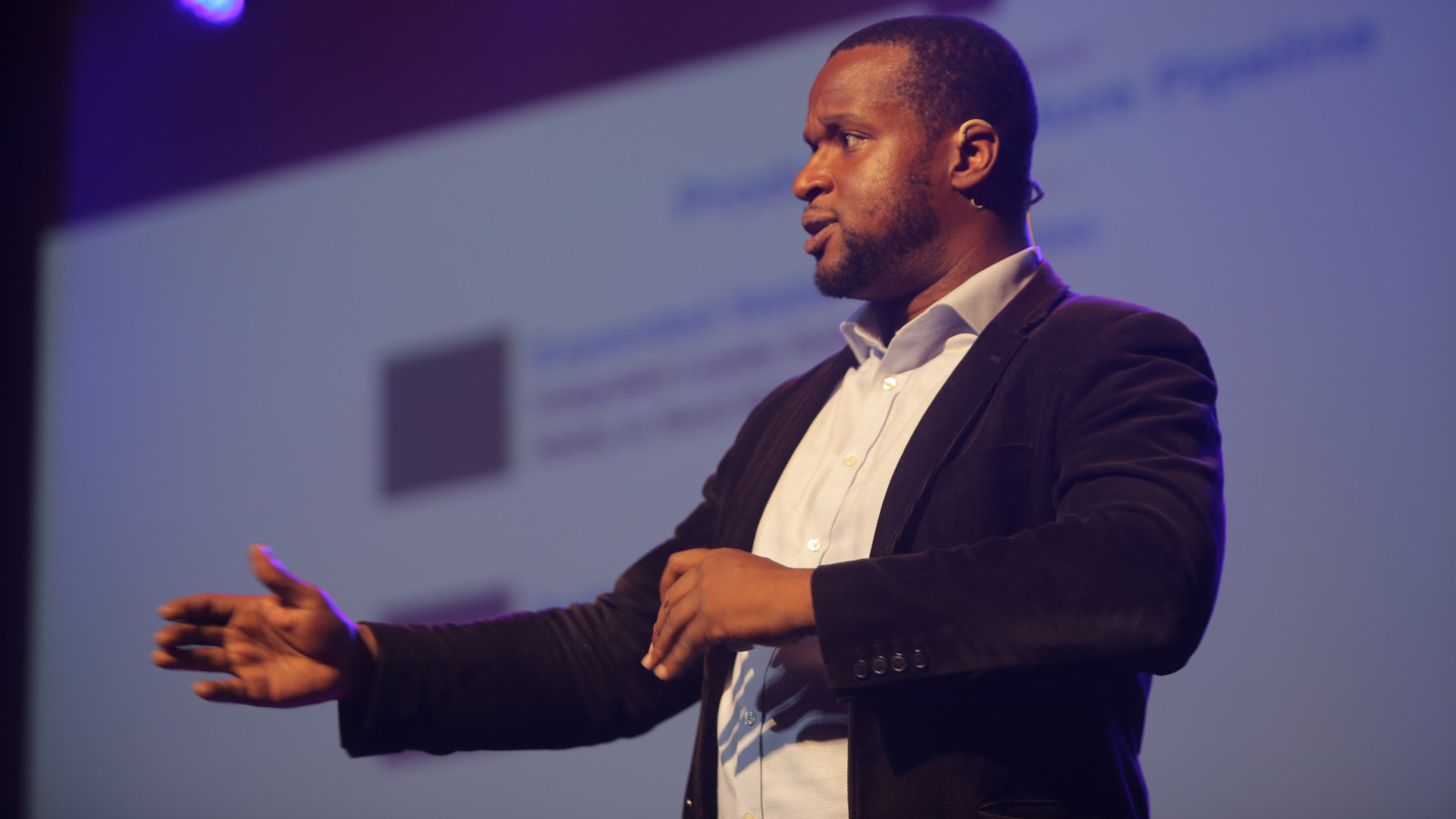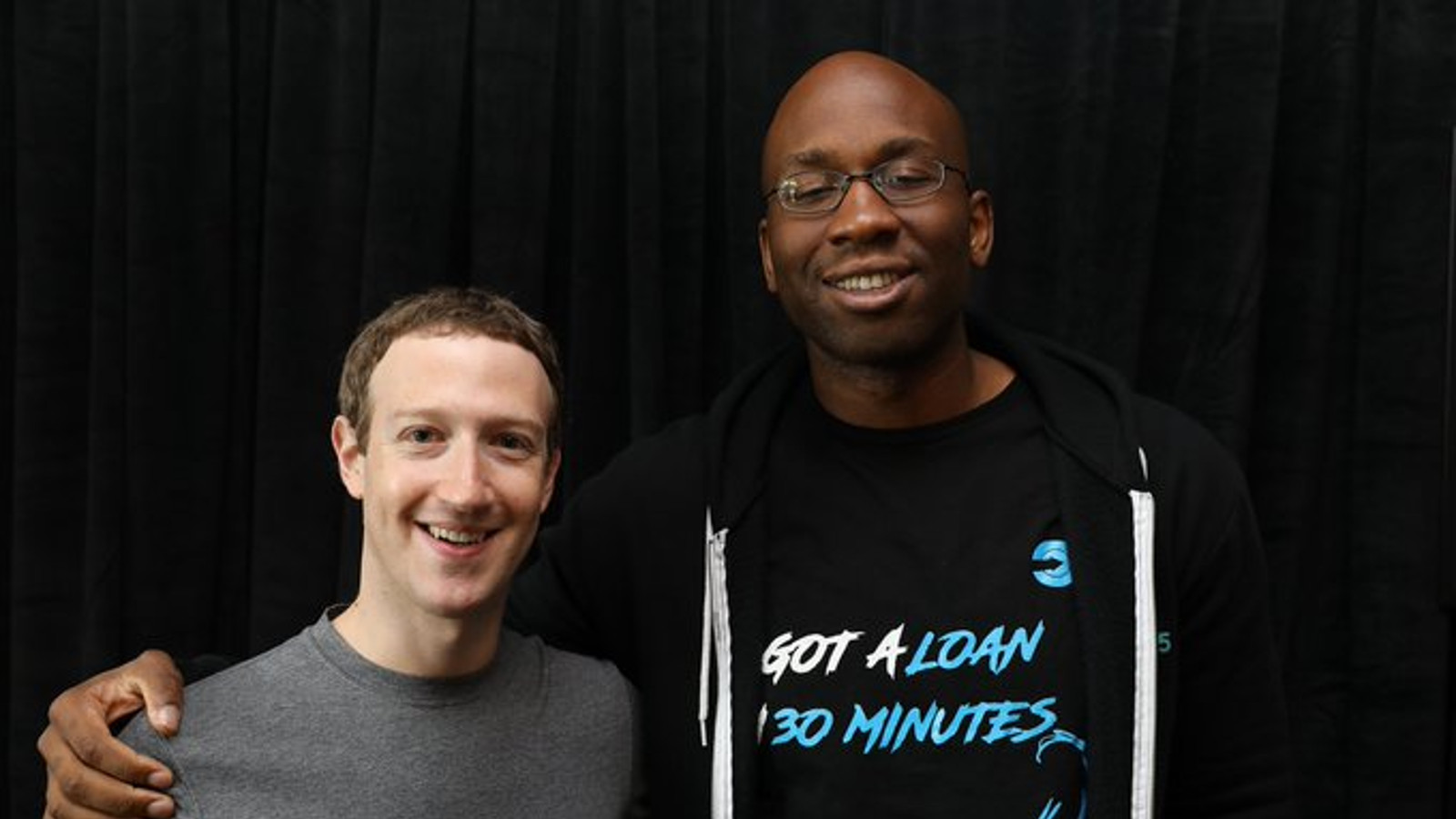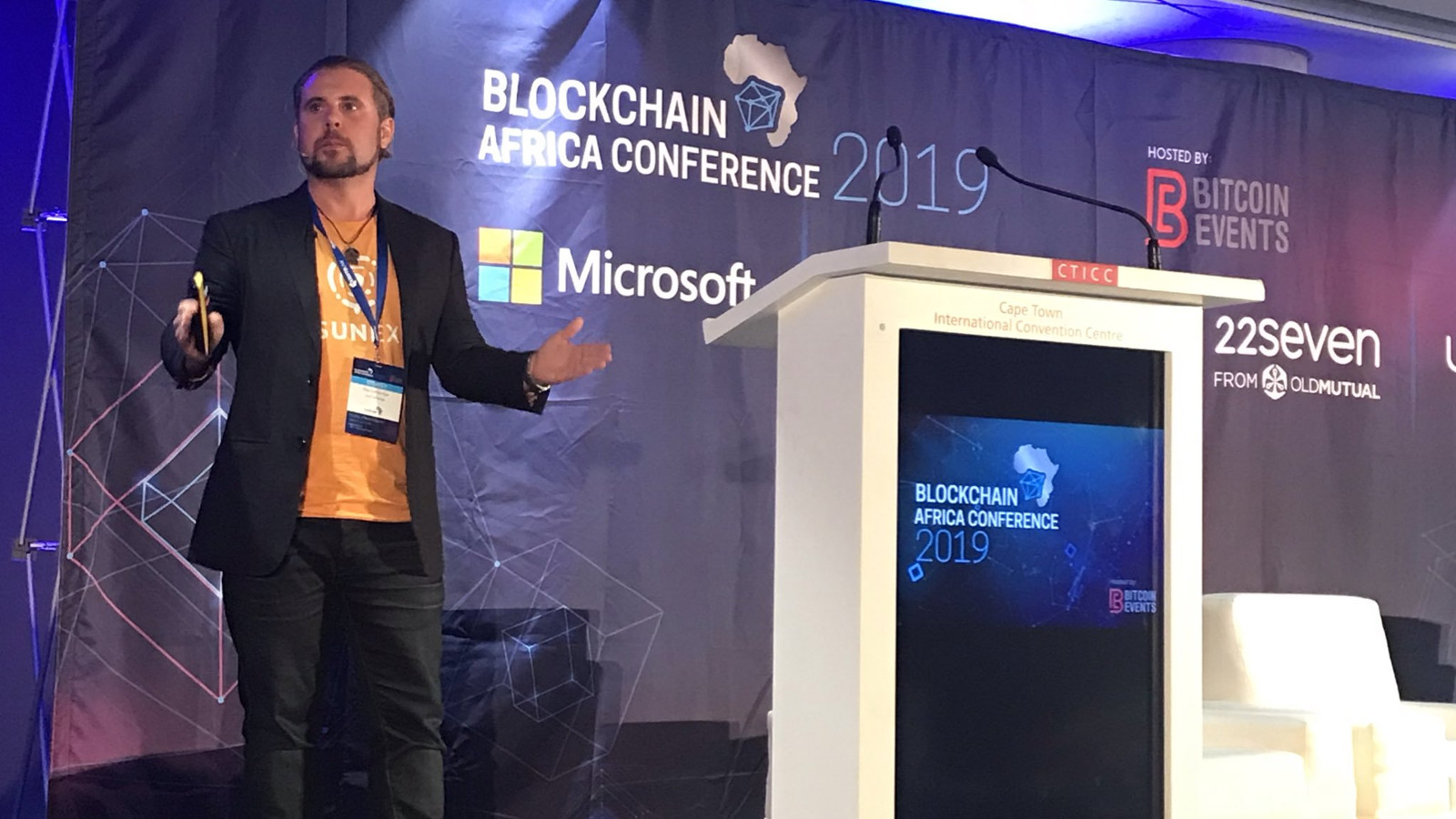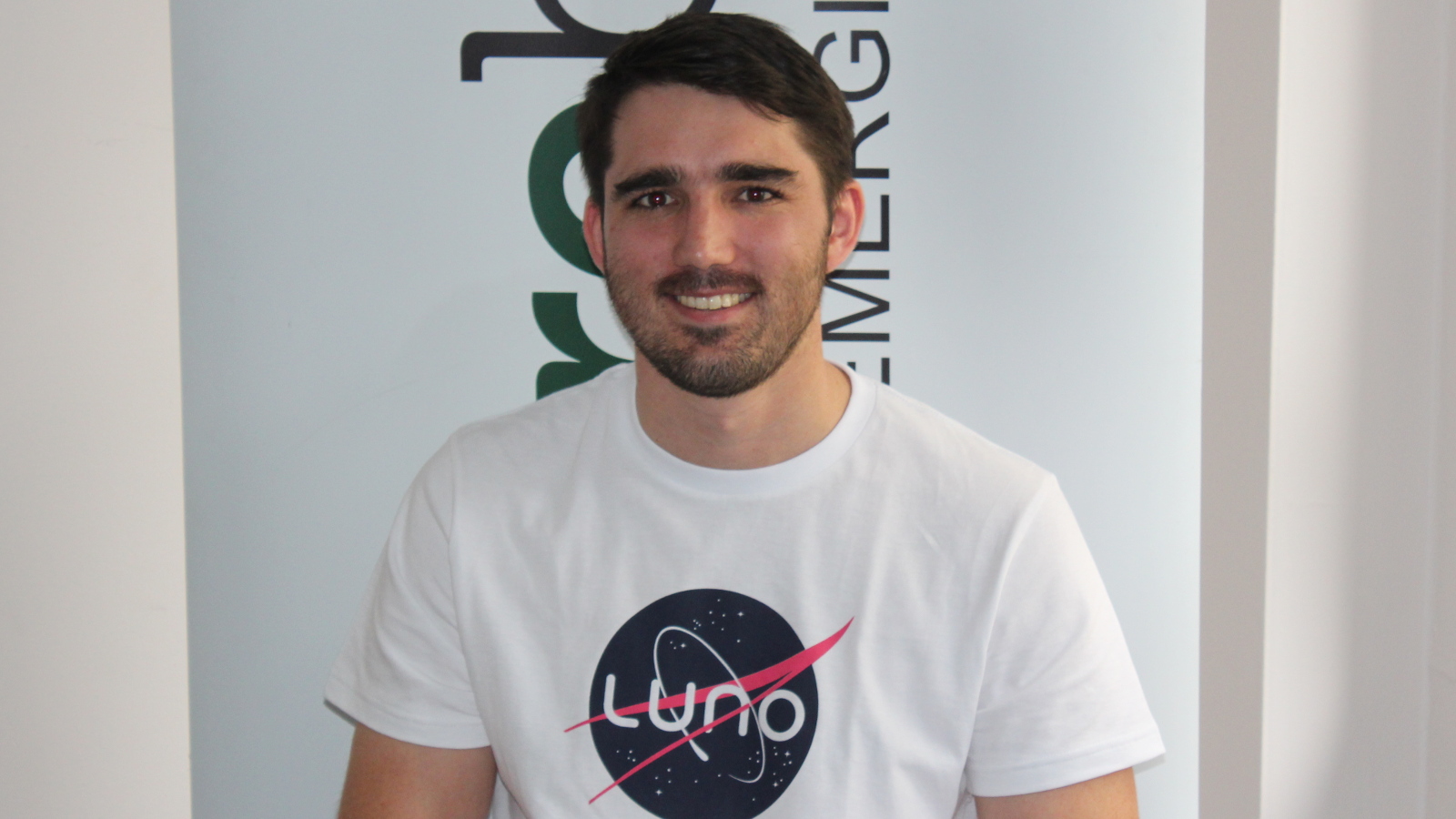In a pioneering effort to tackle South Africa’s growing digital divide, WeThinkCode_ and South Cape TVET College have partnered to roll out an 18-month…
Top African startups are upbeat over plans for 2020 – here’s why

It might still be early days, but 2020 seems set to be a good year for African tech startups.
This is the general sentiment from some of Africa’s top tech startups — such as Egyptian healthtech firm Vezeeta, Nigerian mobility platform Max.ng and SA bitcoin exchange Luno — that Ventureburn surveyed this week.
From new products, markets, partnerships to multi-million dollar funding rounds in the works, here’s what these startups expect in 2020.
Vezeeta: Exploring expansion in African markets
Egyptian healthtech firm Vezeeta, which was founded in 2012 by CEO Amir Barsoum (pictured above), has developed one of the Middle East and North Africa (MENA) region’s largest healthcare booking platforms and medical practice management software.
The company, which in 2018 raised a $12-million Series-C round led by Saudi Technology Ventures (STV) and another $1-million investment from the International Finance Corporation (IFC) months after that deal, is exploring expansion in African and South-East Asian markets.
Vezeeta said that in line with Africa’s 2030 vision and the UN’s Sustainable Development Goal 3 — good health and well-being for all — it is excited about the potential for digital health expansion on the continent.
This, it added, given the collective commitment of African nations to identify and support the pathway to achieving robust digital health systems in their countries.
“Our participation at the African Healthcare Extension Summit in Nairobi in November 2019, opened-up new doors for us to explore opportunities of growth within Africa to unlock the benefits of Vezeeta’s product portfolio through private and public partnerships in the upcoming months,” the company stated.
Max.ng: 10 cities, new products by end of year
Adetayo Bamiduro, the CEO and co-founder of Lagos-based mobility platform Max.ng, believes 2020 will be a “very special” year for the startup, building on the back of a $7-million Series-A round the company closed last year.
Max.ng began as a delivery service, and now also operates an on-demand motorcycle-taxi hailing platform. Bamiduro founded the company in 2015 with Chinedu Azodoh.
The startup currently operates in three other cities outside of Lagos, but is now targeting at least 10 cities in the West Africa region. On top of this it is looking to deploy electric vehicles (EVs) on top of the EV battery charging infrastructure that the startup started building last year, said Bamiduro.
Although he did not name the additional cities it is aiming to enter, Max.ng has in the past hinted at plans to expand to Ghana and Ivory Coast.
Bamiduro said the startup will not only be scaling-up its three-wheel service, but also plans to introduce a boat service and possibly even cars, to its platform. In addition to this, Max.ng wants to provide new value-added financial services like digital wallets which will enable its users to transact on its platform.
The transport startup is also taking carbon emissions seriously and is looking at scaling the availability of electric motorcycles and possibly electric bicycles on its platform.
The startup, which has strategic partnerships with Japanese motorcycle and marine hardware manufacturer Yamaha — which is also its investor — is working together with “a bunch” of partners in Asia on its electric vehicle projects.
In addition to this, Bamiduro said Max.ng also has strategic partnerships in the works with Mastercard with which it is collaborating with on payment products.
Says Bamiduro: “Investors are super bullish in our space, it’s a nice thing to have”.
Gozem: Second quarter launch in Cameroon, Gabon
For Gozem co-founder and MD Emeka Ajene (pictured above), 2020 will likely be a year of “continued growth” for the startup.
Singapore-based Gozem operates a ride-hailing service in Benin and Togo that relies on motorcycle-taxis, auto-rickshaws and air-conditioned taxis.
Ajene launched Gozem in Togo together with co-founder and serial entrepreneur Raphael Dana in 2018.
Gozem intends to add more users by expanding to more cities as well as by extending its in-country coverage in Benin and Togo.
“We will also expand out of our existing country footprint to add at least four new markets for a total of six, and we will expand beyond transport to offer our users fintech and delivery services as well,” said Ajene.
He explained that the startup’s teams are preparing for second quarter launches in Cameroon and Gabon. The startup will launch in further markets before the end of the year, he added.
Also by year end, Gozem plans to launch a delivery service as well as fintech offerings that include a digital wallet with peer-to-peer payment, lending and remittance functionalities.
Ajene pointed out that growth at Gozem is being driven by quickening smartphone adoption and the increasing affinity by Africans for smartphone and internet-based service offerings
“We’ve experienced strong uptake of our on-demand mobility service since launch and all data indicates that our users’ appetites for a diverse set of additional smartphone-based services will grow at a similar or more accelerated pace,” he added.
Gozem expects to close a $10-million Series-A round before the end of the year, revealed Ajene.
Migo: Deepening access to credit in Nigeria
Migo, a US-based credit platform that was founded in 2014 by Nigerian team comprised of Stanford University professor Kunle Olukotun and Ekechi Nwokah (pictured above, centre with Olukotun right), closed last year on a high note with a $20-million Series-B round.
Migo’s cloud-based platform enables companies to offer credit to their customers, augmenting traditional bank and payment card infrastructure.
Migo VP of growth Adia Sowho says 2020 is shaping up to be a great year for the fintech.
“We plan to invest the recent $20 million in Series-B funds in deepening access to credit in Nigeria as well as launching in the similarly populous Brazil,” she said.
Sowho said the startup would “definitely love to see” more enabling regulation to support business growth across the ecosystem.
“The market is seeing a surge from fintech and credit services so things are poised to be more interesting and potentially more competitive,” she added.
Kobo360: 10 new countries by end of 2020
Kagure Wamunyu, who heads Nigerian logistics startup Kobo360‘s Africa region, says the startup plans to expand to 10 additional countries by the end of the year in both Africa and the North Africa region. She did not disclose the names of the 10 countries.
She points out that over the last two years, the company has been using technology to fix the inherent inefficiencies and supply-chain issues that exists in road-based logistics.
The startup’s platform aggregates a fleet of over 17 000 drivers and trucks, that operate in Nigeria, Ghana, Kenya and Togo.
The Lagos-based startup was founded in 2017 by Obi Ozor, who is its CEO and Ife Oyedele, its CTO (pictured above, from left to right, respectively) and has since raised $37.3-million in institutional investment from venture capital firms.
This year, Wamunyu said, Kobo360 wants to keep up the momentum. The startup is betting on the African Continental Free Trade Area (AfCTA) agreement — the world’s largest free trade area — which is set to take effect in July.
The agreement will ease legislative roadblocks and in doing so guarantee free movement of goods. But, as Wamunyu pointed out, there are still some concerns about the process of delivering goods to where they are supposed to go.
“This is where Kobo360 comes in. Using technology, we will connect all the key elements in the supply chain — from drivers, truck owners, cargo owners and their recipients — this will essentially improve African logistics and ensure there is a process in place once the agreement comes into full effect,” she said.
Kobo360 is also exploring the use of blockchain to improve its logistics processes. The startup is in the process of building a blockchain-enabled platform Global Logistics Operating System (G-LOS), which Wamunyu said will power trade and commerce across Africa and frontier markets.
Wamunyu said Kobo360 had as of last year begun a phase of rapid expansion into markets like Ghana, Kenya and Togo as well as soft launched in Uganda.
Carbon: Expand to new African countries
Lagos-based fintech Carbon (formely OneFi) will this year expand its pan-African digital bank mission to new countries, so says co-founder and CEO Chijioke Dozie (pictured above, right with Facebook CEO Mark Zuckerberg).
Carbon, he pointed out, expanded to Kenya late last year and has plans for a re-launch in Ghana “in the near future”. The firm also has its sights set on Egypt.
The company, which Dozie founded in 2012 together with Ngozi Dozie, offers a number of financial services that include banking services, access to credit, payment and investment products, as well as personal financial management tools.
“Our plan is to be a pan-African digital bank for Africans and Africans in the diaspora and we are aiming to take significant steps towards achieving that in 2020,” said Dozie.
Dozie said the company wants its mobile-based services to be widely accessible across multiple channels including the iOS, USSD and web platforms, as well as through select partnerships.
“As Africa’s tech scene develops, fintechs will have to collaborate to fight off competition who are likely to be well-resourced. We anticipate increased collaboration between fintechs, as APIs are opened and information is shared,” he said.
Dozie said the fintech also anticipates the re-emergence of QR codes. He explained that although these aren’t necessarily new, a number of financial institutions have been driving merchant adoption in recent months.
“It’s a channel for all banks at the moment but there’s been minimal uptake amongst merchants. However, if banks and fintechs can convince merchants to come on-board and educate the market on the benefits, the opportunity could be huge,” said Dozie.
RapidDeploy: Strong sales pipeline, expansion in US
RapidDeploy head of finance Michael Leins says the US and SA-based startup has a strong outlook for 2020.
The startup’s cloud-based software enables public safety officials to reduce emergency response times and improve situational awareness. The startup was founded by Steven Raucher and Brett Meyerowitz (pictured above, left and right, respectively), in 2014.
Leins said the startup is “growing rapidly” both in the US and SA.
“On the sales front, we have recently signed some important customer deals (Charleston County) on top of the two statewide deals we closed in 2019 (California and Kansas) and look forward to bringing cloud-aided dispatch to more first responders and their citizens.
“Our sales pipeline is strong and we expect to be able to announce more exciting deals over the course of the year,” he added.
Leins pointed out that the startup’s Cape Town development office continues to grow and recently the company had to move out of its original office into a larger space where they have room to support continued growth (see this story).
RapidDeploy, he said, continues to see the US government’s adoption of the cloud as a driving force behind its momentum and growth.
“We continue to remain focused on expanding within the United States 9-1-1 market as well as focusing in our backyard, South Africa, ” he added.
The startup has strong partnerships with AT&T, Microsoft and others for its go-to-market strategy
RapidDeploy’s mobile app for first responders, which is available on both iOS and Android platforms, is now also available on FirstNet App Store, a site that is tailored to first responders.
The startup will this year continue to enhance its flagship products Nimbus CAD and Radius.
Leins said RapidDeploy is anticipating raising a Series-B round this year of more than $30-million.
Sun Exchange: Expansion into new SA regions
Last year was a big one for Cape Town-based blockchain-based solar panel micro-leasing marketplace Sun Exchange.
Founder and CEO Abe Cambridge explained this week that not only did its global community double in size to more than 13 000 members from 155 countries, but its solar project portfolio nearly tripled in size with 13 new project crowd-sales completed in 2019.
He also points out that the South Africa government’s policy surrounding the solar sector is increasingly looking favourable — with for example an increasing number of municipalities are adopting net-metering access which improves the economics of solar projects in a commercial environment.
And he said despite one major bank (FNB) ditching all ties with cryptocurrency exchanges, the blockchain technology sector in South Africa is growing “incredibly fast”.
For Sun Exchange, the impact of climate change is one of the main trends that will likely affect its operations this year.
The topic has recently taken centre stage with the fires in Australia and the continued droughts throughout Southern Africa.
“People all over the world are becoming aware of the importance of urgently de-carbonising the energy sector. Interest in solutions like Sun Exchange, which allows people to take action and put their money to good use, will continue to grow quickly,” he said.
He added that as the economic benefits and affordability of solar energy continue to increase, this will make it an alternative to power economic development.
“Schools, small businesses, clinics and other community organisations will increasingly turn to solar to provide clean, reliable, affordable electricity, especially in sunny emerging markets like southern Africa,” said Cambridge.
Sun Exchange is currently working on improvements to its online dashboard, which Cambridge said will enhance members’ experience with the platform.
“Additionally, we plan to launch our secondary marketplace for solar cells this year, which will make our solution even more dynamic by allowing solar cell owners to buy, trade and sell solar cells among each other,” he said.
The startup will this year also explore new projects in Namibia, Botswana, Kenya and Zimbabwe.
The startup is currently raising a $4-million Series-A round which it expects to close at the end of this quarter.
“This round is to enable us to scale up the operation to achieve an order of magnitude growth within 12 months, just as we have seen 1000% growth in revenues over the past 12 months,” said Cambridge.
Lulalend: ‘Very positive’
Lulalend co-founder and CEO Trevor Gosling, whose startup provides short-term loans to small businesses via its online platform, says the fintech has a “very positive” for 2020.
This as the startup continues to scale using the $6.5-million Series-A round it closed last year.
Lulalend, which Gosling founded the fintech in 2014 with Neil Welman, typically lends out R150 000 over a six-month term period.
“Through a recent survey we conducted, we found that 80% of SA SME’s are feeling positive about business growth for 2020 and 80% believe they will need business funding in the year to take advantage of opportunities.
This, he said, demonstrates the increased levels of understanding of “positive debt” to drive growth for small businesses.
“In addition, SME’s have shown increased levels of comfort with regards to the adoption of digital technology,” he added.
He explained that the startup is looking to build new cashflow management solutions for its customers. It’s not clear when these will like be launched as they are still in the ideation phase).
Gosling said Lulalend has a number of exciting new partnerships on the horizon. He said he couldn’t share details of these until they are launched.
The startup won’t be raising any equity funding round, but will instead be raising “substantial” debt tranches in the course of the year (to enable it to onlend this to SMEs). “We have raised $5-million debt capital thus far in January,” said Gosling.
Luno: Exploring various markets in Africa
SA bitcoin exchange Luno — which already operates in several markets around the world — will this year be increasing its expansion across the continent.
“We are exploring various markets in Africa and beyond as we aim to increase awareness about the potential of this new financial system and the many opportunities presented by cryptocurrencies,” said Luno GM for Africa Marius Reitz (pictured above).
Reitz said the exchange — which was founded by Marcus Swanepoel and Timothy Stranex launched in 2013 — is positive about the future of Bitcoin, and in cryptocurrencies in general, and will be introducing more coins on its platform this year.
In addition, Luno will be rolling out new app enhancements, improving customer feedback processes and introducing instant deposits to make it easier and faster “than ever before” for its customers to buy bitcoin.
One major regulatory development which could potentially affect the exchange is the EU’s 5th Anti-Money Laundering Directive (5AMLD) which will be introduced this year.
Reitz explained that for firms buying and selling crypto-assets, 5AMLD will require them to register with national financial regulators and state minimum requirements for Anti Money Laundering (AML) processes.
“The specifics of how further regulations will affect the crypto space are hard to predict or define. While it’s mainly focused on the EU, it could be replicated in other regions such as Africa if successful,” he added.
Read more: Here are 10 African startups to watch in 2020
Featured image: Greg Montani via Pixabay












